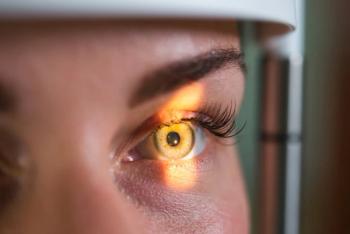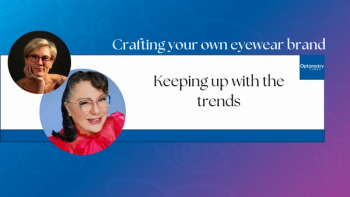
ODs must be responsible for public misconception about optometry
I didn’t get up screaming. I didn’t hurl my computer across the room. I didn’t even let my inferiority complex show through the emotions I was feeling. Instead, I calmly and politely wrote a short letter to the news organization explaining what optometrists are, and that glaucoma was what I, as an optometrist, spent most of my days dealing with.
The other day, in between seeing patients and figuring out how to reconcile an insurance check with our new electronic health records software, I found the time to read an article online concerning glaucoma. The article was from a major news network and highlighted a possible increased risk of glaucoma with use of an oral contraceptive. Toward the end of the article, some patient advice was outlined that caught my attention: according to the authors, a person at risk should be followed closely by an ophthalmologist.
I didn’t get up screaming. I didn’t hurl my computer across the room. I didn’t even let my inferiority complex show through the emotions I was feeling. Instead, I calmly and politely wrote a short letter to the news organization explaining what optometrists are, and that glaucoma was what I, as an optometrist, spent most of my days dealing with. As well, I forwarded the article along to my fellow board members of our state association. Then, I got to dwelling on all of the people and organizations I’d like to blame for statements like these being commonplace in the media. However, I then had one of those “a-ha” moments (and not the good kind)-actually began blaming myself.
I started to think about what I do to help the general public understand what it means to be an optometrist in this (and last) century. The majority of my speaking engagements and articles written are for the eyes and ears of other optometrists. However, I can’t think of many times in which I’ve been proactive in promoting full-scope optometry to non-optometrists. My response to the article mentioned above was merely a reaction that was likely too little, too late for this particular scenario, as they’re likely not going to recant anything on account of little ol’ me.
Missed opportunity
In reflecting on this article, I’m reminded of a conversation I had with a glaucoma specialist about a year ago. He’d never met me before, and we had shared a few patients. I was asking him about his typical modus operandi with referrals and consultations when he said something intriguing.”
“When I’m all finished, I will send a final letter to you saying that the patient is being returned to you for continued optometric care,” he said.
“What does ‘optometric care’ mean?” I asked.
“It means whatever you think it means,” he said.
“Well, what does that mean?” I asked.
“There are optometrists in this city who don’t even look at the optic nerve, and you know who they are,” he said.
You know what I said? Nothing. Absolutely nothing. I was floored and speechless because I knew he was right. I knew who referred any and all pathology to ophthalmology, and I knew this guy had no reason to think I was any different. I also knew I had to start doing something to further a shift from this paradigm of thinking. Actually, I should have thanked this man for giving me the opportunity to explain that I was residency trained in ocular disease. Also, I should have kicked myself for not reaching out to him and others in my community sooner to try to dispel these myths and generalizations that people seem to have regarding my patient care.
It is truly an exciting time to be an optometrist. Technological and scope advancements are allowing us to better care for our patients (who by and large don’t want to go anywhere else) and have fun doing it. We are primary eye care, and we have the tools and more than enough educational resources to manage glaucoma and other eye diseases effectively.
I promise that in 2014 I will do a better job of communicating to the public all that optometry is and does for our patient base (which is about 70% of the U.S. population).1 I will also try to think of ways to increase OD-to-OD referrals-I do a lot of glaucoma, but prisms and specialty contact lenses make me shiver. I will remember optometry’s roots and be thankful for all who came before my generation. And, lastly, I will not surf the Internet at work anymore (well, maybe just not as much).ODT
Reference
1. University of Houston, School of Optometry. The Optometry Profession. http://www.opt.uh.edu/students/optometry-profession.cfm. Accessed Dec. 9, 2013.
Newsletter
Want more insights like this? Subscribe to Optometry Times and get clinical pearls and practice tips delivered straight to your inbox.









































